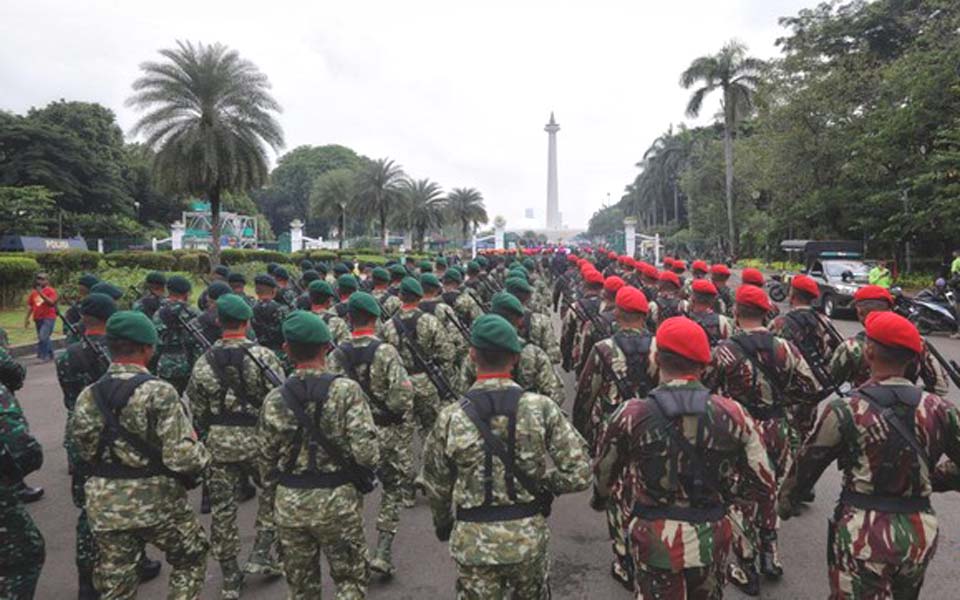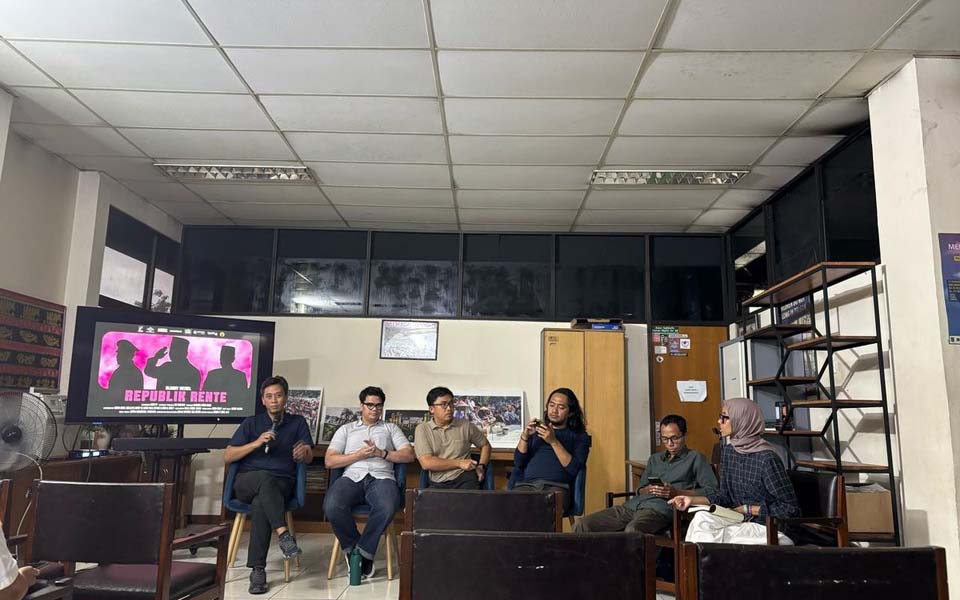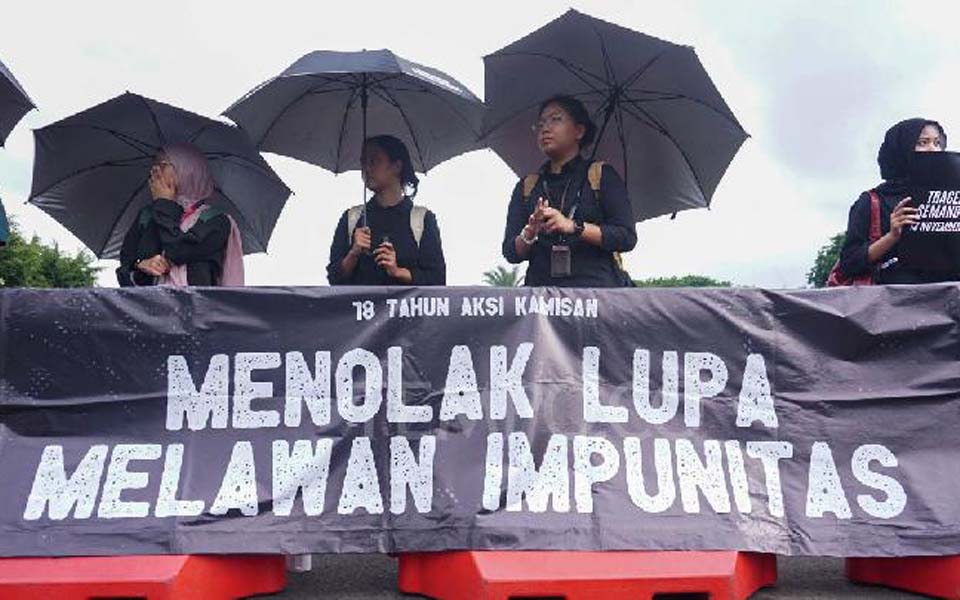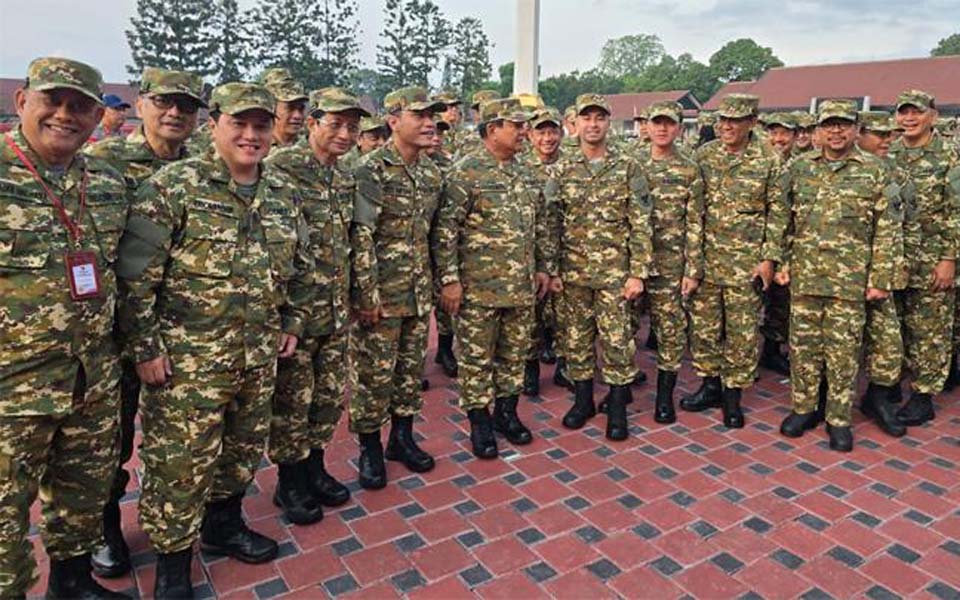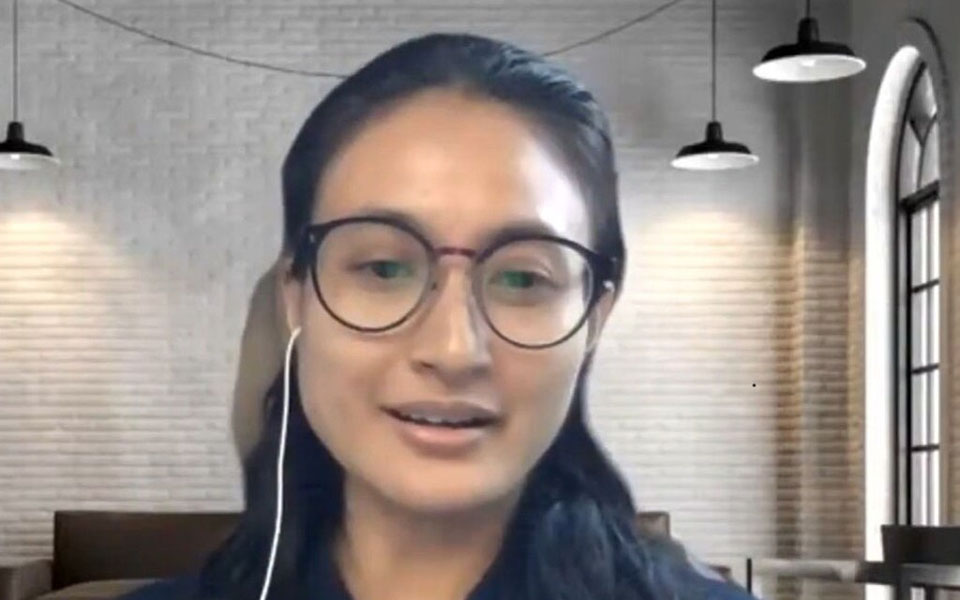Jakarta – Out-dated perspectives on viewing security problems are being strengthened through the Draft Law on National Security (RUU Keamanan Nasional).
Commission for Missing Persons and Victims of Violence (Kontras) activist Indria Fernida, who was sought out following a public hearing with the House of Representatives (DPR) Commission I on defense, foreign affairs and communication on Monday July 4, explained that the approach used by the draft national security law very much prioritises a security perspective ala former President Suharto’s New Order regime and overrides basic humanitarian principles.
“The attention to human rights principles is very minimal. One of the important issues that we are challenging is the protection of citizens’ rights and compensation and rehabilitation in conflict areas. There is no regulation related to the restoration of property losses for residents affected by the impact of activities related to national security”, said Indria.
President can act arbitrarily
Indonesian Human Rights Watch (Imparsial) program director Al Araf, who was contacted following the public hearing, explained that they are critical of Article 17 Paragraphs 3 and 4 on the definition of actual and potential security threats, which are open to multiple interpretations leading to the potential misuse of power. The stipulation of what represents a security threat can be arbitrarily determined by the president through a presidential decree (Article 17 Paragraph 4).
“Thus the president can arbitrarily determine all matters that are deemed to threaten his or her power as a potential or actual threat to national security. The meaning of a threat can be applied to groups that are critical of the state, student actions, labour strikes, actions by farmers and a critical press. The elucidation of Article 17 that categorises mass strikes, the destruction of moral values and national ethics, ignorance, the deconceptualisation of the formulation of legislation and regulations and so forth as a national threat are articles that can be interpreted to one’s liking”, explained Al Araf.
Al Araf warned that this one article alone represents a threat to civil liberties and human rights. In addition to this, the draft law is also a threat to the rights and freedoms of the parliament in drafting legislation, the freedom of expression, press freedom and in the final analysis is a threat to democracy itself.
Contacted separately, DPR Commission I deputy chairperson Tubagus Hasanudin conceded that there are still many weaknesses in the draft law.
“We regret that the National Human Rights Commission as part of the government was not involved much in the drafting process. The government should open the door as widely as possible for input by different parties, the public in particular, before submitting the draft law to the DPR. Likewise in the case of draft laws that are presented on the initiative of the DPR”, said Hasanudin.
In the near future Commission I plans to invite academics from related institutions such as the national police. “We will invite the former national police chief and officials that are still active [to take part] in a public hearing. There are still many weaknesses in the draft law”, said Hasanudin. (ONG)
Source: Keamanan Nasional: Perspektif Lama Masih Menguat – Kompas. Rabu, 06 Juli 2011 <>
[Translated by James Balowski.]






